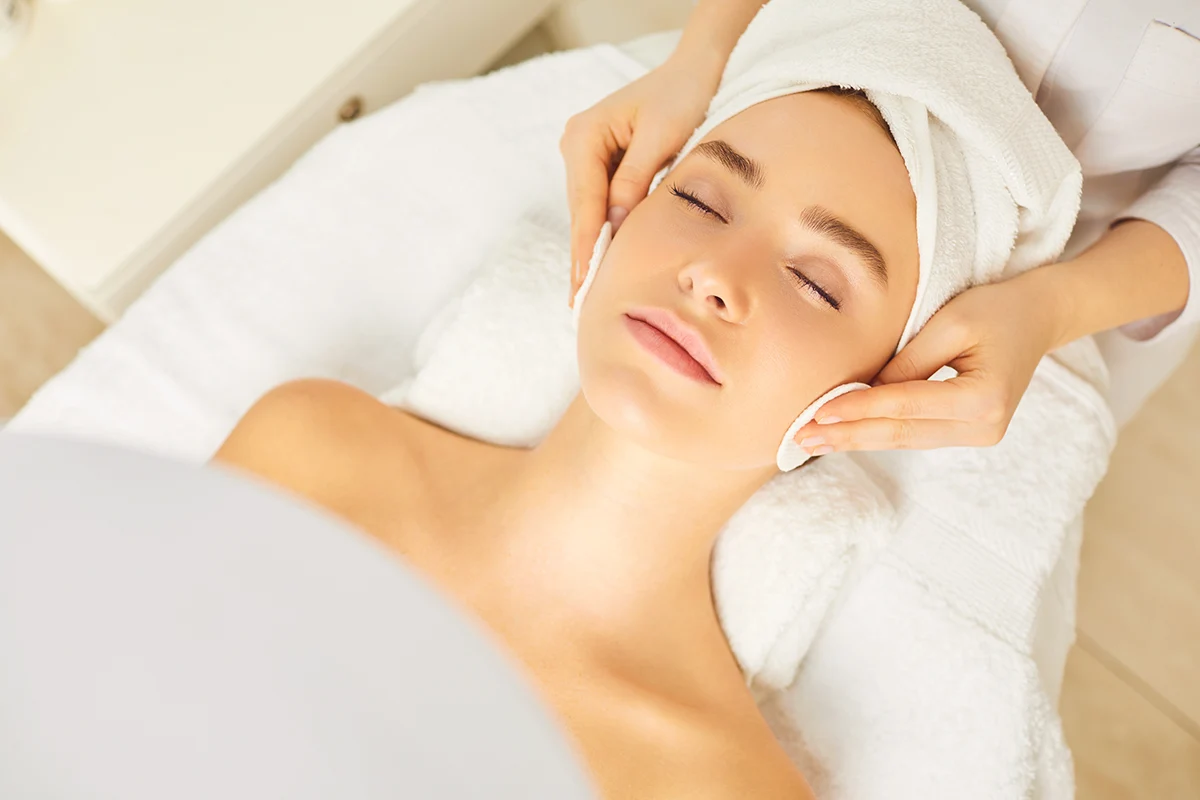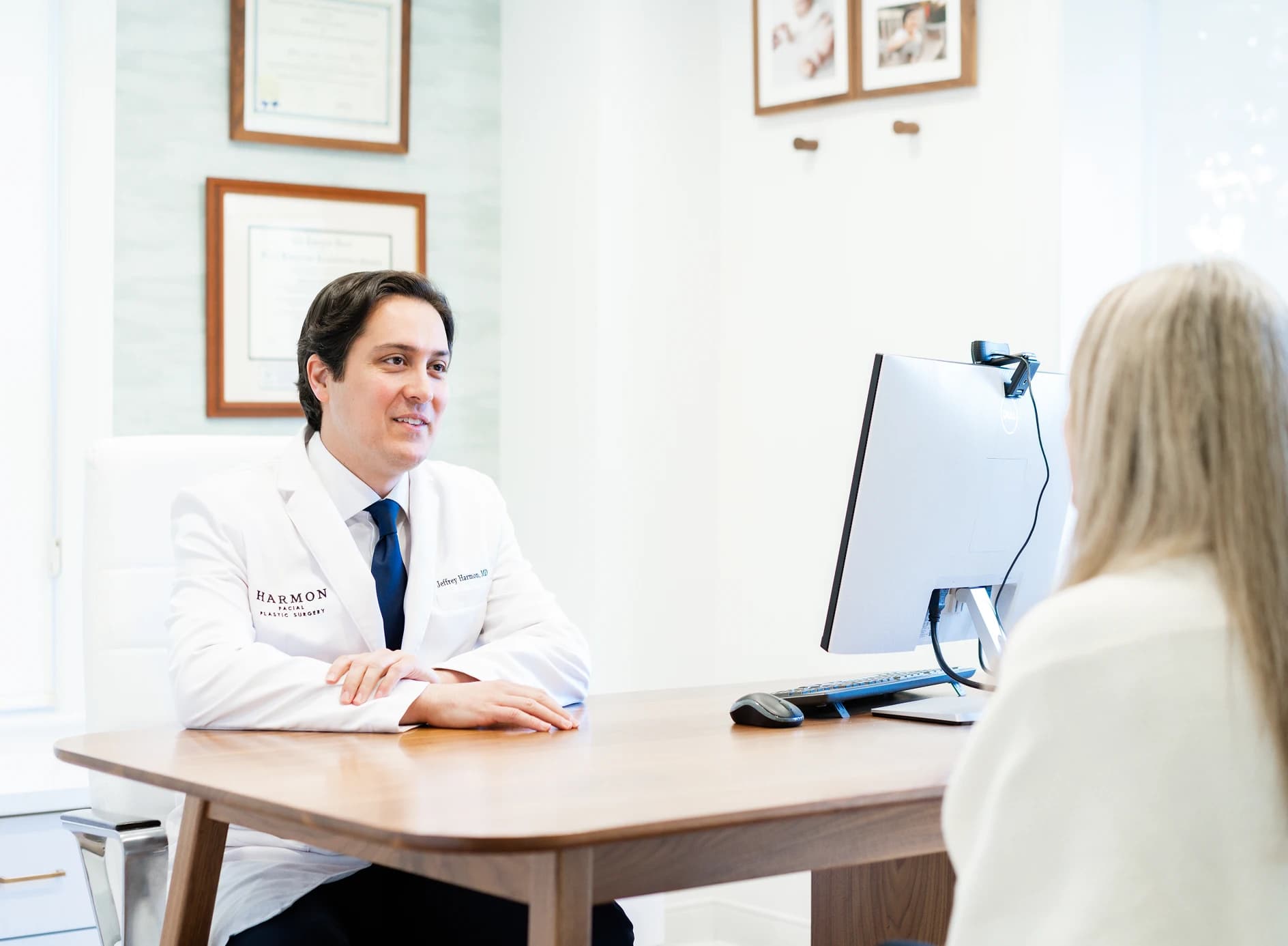Hypochlorous Acid (HOCl) as a Skin Cleanser in Cosmetic Facial Plastic Surgery: An Explainer

"That smells great, like pool water!" I hear this frequently during my injectables treatment sessions with my patients. This is because I use hypochlorous acid (HOCl) to clean the skin prior to placement of neuromodulators (e.g. Botox©) and hyaluronic acid filler. Widely used as a disinfectant in pools – hence, the strangely pleasant smell –, HOCl has more recently been formulated as a gentle antiseptic agent for the skin. HOCl is gaining a lot of attention among facial plastic surgeons and the media due to its many advantages and few disadvantages compared with other antiseptic agents. It certainly has become a valuable addition to my practice over the years, as will be explained below. But is it at risk of becoming another Windex® as referenced in the movie My Big Fat Greek Wedding, where the father figure recommends its use for everything, regardless of its actual effectiveness?
What Is HOCl and What is it Used for?
HOCl is a naturally occurring substance produced by immunological cells when fighting bacterial infections in the body. It damages the cell membranes of bacteria, causing their death. HOCl also has anti-inflammatory properties, which align with the production of HOCl by our immune system in response to a bacterial infection.
The HOCl used in medicine is a clear liquid that is poured on or sprayed on intact skin, an incision, and/or an open wound for the purpose of reducing the number of bacteria on tissue, thereby preventing and/or helping to treat an infection. A reduced bacterial burden in a wound can also accelerate the healing process. There are multiple producers of HOCl for medical use. One example is Puracyn® Plus, which is the product I use most frequently.
HOCl is used as an antiseptic (i.e. bacteria killer) prior to, during, and/or after surgical and non-surgical procedures in facial plastic surgery. It is also used on chronic non-healing wounds in other areas of the body, particularly in patients with conditions such as diabetes who are more likely to suffer from such wounds.
Is HOCl Safe?
HOCl has been demonstrated to be safe in particularly sensitive areas in animal models, including the eyes (1). As stated above, HOCl has been used safely on less sensitive human tissue (e.g. skin) for years, including by me.
Is HOCl Effective?
HOCl is a naturally occurring substance but requires specific conditions to remain stable and effective. In fact, HOCl only became a viable product for widespread use in medicine when a gentler concentration could be stabilized at a specific pH and mass-produced. In vitro (i.e. cell culture) studies demonstrate significant, quick (within a few minutes) effectiveness again many bacteria, including those that are resistant to some antibiotics (1)
How Does HOCl Compare With Other Similar Products?
An ideal disinfectant works quickly against a wide range of bacteria without causing damage to surrounding normal cells, thereby allowing healing to progress. Importantly, HOCl compares favorably with other similar products, especially when it comes to how quickly it works and how gentle it is on healthy tissue. It is important to note, however, that research on HOCl is limited by the fact that most studies are not randomized controlled trials (RCTs). Instead, they largely consist of studies carried out in vitro (i.e. cell culture) and on animals. Those that do involve humans typically include only a very small number of patients.
There is no "best" treatment protocol for disinfection of the skin before a procedure or of a surgical site after a procure. There are multiple products available other than HOCl, including:
- Isopropyl alcohol
- Chlorhexidine gluconate
- Povidone-iodine
Each antiseptic has advantages and disadvantages.
The advantages of HOCl are that it is:
- Non-irritating
- Anti-inflammatory
- Quick acting
- Broad spectrum, meaning, it can treat many different "families" of bacteria
- Able to break up biofilms, which are "communities" of bacteria that band together and build defensive structures to block the immune system and antibiotics from killing them (2)
Chlorhexidine gluconate and povidone-iodine, in contrast with HOCl, are harsher on tissue. As a result, HOCl may be a superior option for treating open wounds and surgical incisions.
The disadvantages of HOCl are:
- That there is an important question about the effectiveness of HOCl products over time due to the specific conditions under which stabilized HOCl must be produced
- That it is, frankly, not as effective in killing bacteria as some antiseptics, including chlorhexidine gluconate (3)
Chlorhexidine gluconate has been shown to be more effective than other agents in reducing the overall burden of bacteria on the skin (3). As a result, it may be a superior option for treating intact skin prior to surgery when compared with HOCl.
In summary, HOCl is an excellent option for treating skin prior to minor procedures involving needles such as injectables. It is also an excellent option for treating incisions and open wounds after surgery. Other products, however, are likely superior as a agent to "prepare" the skin immediately prior to surgery.
References
- Wang L, Bassiri M, Najafi R, Najafi K, Yang J, Khosrovi B, Hwong W, Barati E, Belisle B, Celeri C, Robson MC. Hypochlorous acid as a potential wound care agent: part I. Stabilized hypochlorous acid: a component of the inorganic armamentarium of innate immunity. J Burns Wounds. 2007 Apr 11;6:e5.
- Day A, Alkhalil A, Carney BC, Hoffman HN, Moffatt LT, Shupp JW. Disruption of Biofilms and Neutralization of Bacteria Using Hypochlorous Acid Solution: An In Vivo and In Vitro Evaluation. Adv Skin Wound Care. 2017 Dec;30(12):543-551.
- Tran AQ, Topilow N, Rong A, Persad PJ, Lee MC, Lee JH, Anagnostopoulos AG, Lee WW. Comparison of Skin Antiseptic Agents and the Role of 0.01% Hypochlorous Acid. Aesthet Surg J. 2021 Sep 14;41(10):1170-1175.
Disclaimer
This blog post is for educational purposes only and does not constitute direct medical advice. It is essential that you have a consultation with a qualified medical provider prior to considering any treatment. This will allow you the opportunity to discuss any potential benefits, risks, and alternatives to the treatment.

Book Your Consultation
Take the first step toward enhancing your natural beauty by scheduling a personalized consultation with Dr. Jeffrey Harmon. As a double board-certified facial plastic surgeon trained by the pioneer of the extended deep plane facelift, Dr. Harmon offers expert guidance and care. Whether you're considering surgical or non-surgical options, our team is here to support your journey to renewed confidence.